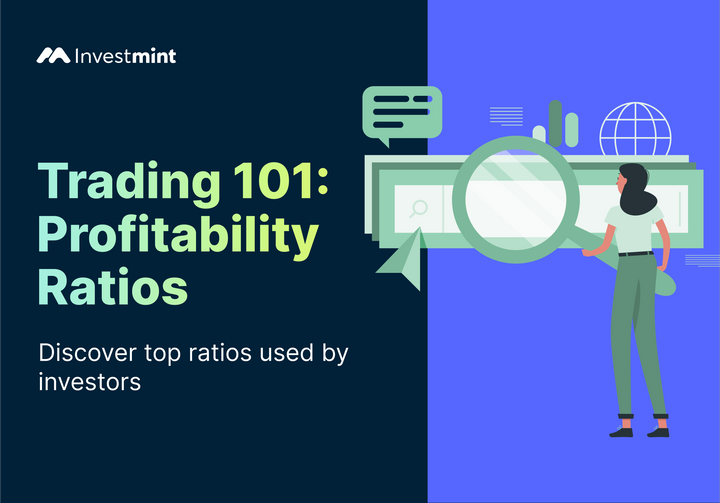A Comprehensive Guide To Online Stock Trading
Master online stock trading: Learn market basics, choose brokers, execute trades— a guide for beginners to navigate stock markets successfully.

Introduction
As mentioned in one of our earlier articles, investing in equity markets should be considered by you, as it enables you to profit from diversification and a probability of higher returns over the long term. Therefore, in continuation with the earlier article, we are writing this guide for online stock trading.
This guide lets you understand the stock market's trading mechanism and conduct your 1st trade online. We will also take you through some of the essential components of stock market trading, like the exchanges, brokers, depositories, etc. and help you understand them clearly.
What Is Stock Trading?
Stock market trading is the process of buying and selling stocks, which are shares of ownership in publicly traded companies. When you buy a stock, you become a part owner of that company, and your ownership stake is proportional to the number of shares you own.
The stock market is a platform where buyers and sellers come together to exchange shares, and the forces of supply and demand determine the price of a stock.
Stock market trading can be done in a variety of ways. For example, you can buy individual stocks through a brokerage account or invest in mutual funds or exchange-traded funds (ETFs) that hold a diversified portfolio of stocks. Some investors also use options or futures contracts to trade on the movement of stock prices.
However, it's important to remember that investing always carries some level of risk, and it's important to do your research and consult with a financial advisor before making any investment decisions.
Why Trade In Stock Markets?
Investing in the stock market can be ideal if you want to grow your wealth over time. Stocks offer several benefits, like higher returns from traditional instruments, passive income through dividends, and diversification among various sectors. Unlike fixed-income securities, stocks have the potential to provide a return proportional to the company's growth, which can help protect against the effects of inflation on your portfolio.
Additionally, stocks have historically outperformed other asset classes, making them an attractive option for investors looking to earn higher returns.
Important Components Of Trading In Stock Markets
- Demat and Trading Account
To start to trade in equity markets, you will need a demat & trading account from a stockbroker, which you can quickly get by uploading the required IDs. Some of the top brokers in India are Zerodha, Upstox, and Grow, which offer nearly the same services but charge differently.
It is better to understand the broker charges for trades beforehand and then create an account with the broker. If you are below 18, you can open a trading account by nominating a person as your guardian and carrying out the verification process of the broker.
The purpose of the broker is to act as an intermediary between you and the stock exchange. For example, when you want to buy or sell company shares, you place an order with your broker. The broker then sends the order to the stock exchange, where it is executed. - Exchanges
The stock exchange is the marketplace where you can buy and sell publicly traded securities, including stocks, bonds, and other financial instruments. The exchange provides a platform for buyers and sellers to come together and trade these assets. Brokers are licensed professionals with access to the stock exchange and can execute trades for their clients (you and other investors). - Depository accounts
Depositories are institutions holding securities on investors' behalf. In India, there are two depositories, CDSL and NDSL. When you buy company shares, they are stored in a depository account, similar to a bank account. Depositories are responsible for safekeeping securities.
The broker will do the due diligence of creating the account with the depositories (CDSL/NDSL) for you and send a TPIN to your registered email address. Transaction Personal Identification Number (TPIN) is essential for all investors to authorise a sell order of any stock in your portfolio. So you will be referring to it constantly and hence advised to keep safe.
How To Start Trading Stocks?
Once you have created a broking account, you can start trading (buying/selling) stocks of your interest through the account. To start trading, follow the below-mentioned steps. The steps are in reference to the Zerodha broker account I use, and these won't vary vastly across the popular broker in India.
- Fund your trading account: Once your trading account is set up, you will need to add money through which you can buy or sell shares. You can transfer funds from your bank account to your trading account through net banking or UPI. UPI transactions are free of any charges and hence are generally recommended.
- Place your order: Once your account is funded, you can place an order to buy or sell shares. You will need to provide the name of the company whose shares you want to buy or sell, the number of shares, and the price at which you want to execute the trade.
- There are multiple options like the MIS for Intraday trade, CNC for buying a long position, and options to buy at market/limit price, among others. So choose according to your intentions and click buy. You can learn more about these options here.
- It would be best to support the investment decision by thoroughly analysing the stock's technical and the company's fundamentals. One of the basic analyses is checking the past performance of the stock. However, the investment decision should also be checked with current market conditions, company news, investment goals, and other parameters.
- Monitor your trade: After placing your order, you can monitor the progress of your trade through the 'position' section of your trading account. You can see the status of your order, whether it has been executed or not, and at what price.
- Settlement: After your trade has been executed, the shares will be transferred to your demat account, and the money will be credited to your trading account. This process is known as settlement and usually takes two days.
- Exit strategy: Finally, having an exit strategy in place is important. Although, it might not be the case if you are holding a stock for the long term. However, if you are trading stocks intraday, planning to exit or booking the profits is important. You can also use 'Investmint' to get data-backed entry and exit alerts for all your trades.
- Continue to Learn: The stock market is constantly changing, and it's important to continue learning and staying current on the latest trends and investment strategies. Many online brokerage platforms offer educational resources and tools to help you improve your trading skills. It's also a good idea to read books, attend seminars, and talk to other investors to gain new insights and ideas.
Mistakes To Avoid In Online Stock Trading
- Overtrading: One of the most common mistakes you can make is overtrading; you buy and sell too frequently, leading to unnecessary fees and expenses. Overtrading can also increase the risk of making emotional decisions, which we'll discuss briefly.
- The Herd Mentality: Another mistake is failing to conduct proper research before trading and joining the traders' herd; you buy or sell stocks just because everyone else does it, without conducting proper research or analysis. This can be a dangerous game, leading to losses if the trend changes.
- Not Diversifying: Ignoring diversification is another mistake to avoid. It's important to have a well-diversified portfolio to reduce risk. If you only invest in one or two stocks or industries, you're leaving yourself vulnerable to sudden changes in those companies/industries.
- Not having a stop-loss order: A stop-loss order is an order placed with a broker to sell a security when it reaches a certain price. It is a risk management tool that helps traders to limit their losses. Not having a stop-loss order can expose you to huge losses if the market moves against its position.
- Relying on Emotions: Finally, making emotional decisions can be costly. It's important to stay level-headed and avoid making impulsive trades based on fear or excitement. Always stick to your investment plan and strategy, and avoid making decisions based on short-term fluctuations in the market.
Conclusion
In conclusion, online stock trading is a valuable way to invest in equity markets and potentially grow your wealth over time. However, before you start trading, it's crucial to understand the various components of stock market trading, such as exchanges, brokers, and depositories, and consider your investment goals, risk tolerance, and time horizon. By doing so, you can make informed decisions and limit future obstacles.
It's also important to note that SEBI sets specific guidelines for brokers and trading platforms to ensure security and protect you from fraudulent activities. Then, with the right broker and a funded trading account, you can buy and sell shares of your preferred companies online.



